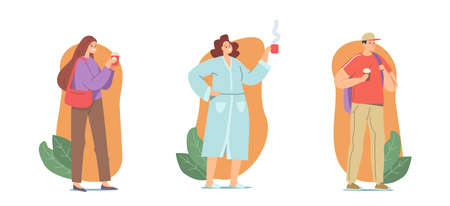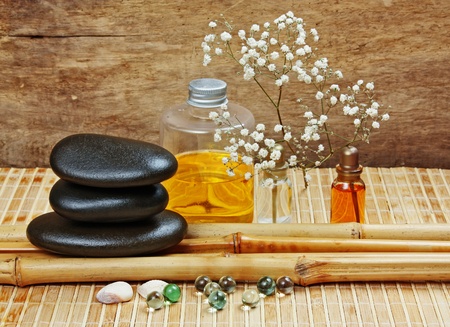Introduction to Ayushman Bharat and AYUSH
Ayushman Bharat, launched by the Government of India, stands as a landmark initiative aimed at transforming the country’s healthcare landscape. As a flagship programme under the National Health Policy, it seeks to provide accessible, affordable, and equitable health services for every citizen, especially the most vulnerable sections of society. What sets Ayushman Bharat apart is its inclusive approach, which not only covers modern medicine but also integrates traditional Indian systems of healing under AYUSH—Ayurveda, Yoga & Naturopathy, Unani, Siddha, and Homeopathy. This integration underscores the government’s commitment to holistic well-being and recognises the deep-rooted cultural relevance of these systems in Indian society. By including free AYUSH services within its comprehensive health cover, Ayushman Bharat ensures that people from all walks of life can benefit from both preventive and curative care tailored to their unique needs and beliefs. Through this synergy between mainstream and traditional healthcare, the scheme aims to promote universal health coverage while respecting India’s diverse medical heritage.
2. Cultural Significance of AYUSH in Indian Society
India’s traditional medicine systems—Ayurveda, Yoga, Unani, Siddha, and Homeopathy (AYUSH)—are more than just healing practices; they are a profound part of the nation’s social fabric. For centuries, these holistic therapies have shaped the health beliefs and daily routines of families across rural villages and urban centers alike. The launch of Ayushman Bharat, providing free AYUSH services to all, honors this deep-rooted legacy while ensuring equitable healthcare access for every community, regardless of economic background.
Enduring Traditions Across Communities
The diversity of India is reflected in the way AYUSH is practiced regionally. Ayurveda finds its stronghold in Kerala and Maharashtra, Yoga flourishes from Haridwar to Bengaluru, Unani is cherished in Hyderabad and Lucknow, Siddha is integral to Tamil Nadu, and Homeopathy has wide acceptance in West Bengal and Odisha. These traditions are not static relics—they adapt to modern lifestyles while staying true to their roots, often passed down through generations as trusted home remedies and preventive care.
Table: Regional Practices of AYUSH Systems
| AYUSH System | Key Regions | Cultural Importance |
|---|---|---|
| Ayurveda | Kerala, Maharashtra | Herbal treatments, dietary guidance, Panchakarma detoxification |
| Yoga | Pan-India (notably Uttarakhand, Karnataka) | Mental wellness, physical fitness, spiritual growth |
| Unani | Hyderabad, Lucknow | Greco-Arabic herbal formulations, pulse diagnosis |
| Siddha | Tamil Nadu | Mineral medicines, longevity tonics, ancient manuscripts |
| Homeopathy | West Bengal, Odisha | Gentle remedies for chronic diseases, accessible to all ages |
The Ongoing Relevance of AYUSH Today
In the contemporary era marked by stress-related disorders and lifestyle ailments, AYUSH practices offer holistic solutions rooted in prevention and balance. The Ayushman Bharat initiative ensures that these time-tested methods remain accessible to everyone—from farmers in Punjab seeking relief from joint pain with Ayurvedic oils to IT professionals in Bengaluru embracing Yoga for mental peace. With government support and public trust interwoven, AYUSH continues to bridge tradition with modernity, fostering well-being for all sections of society.

3. Scope and Accessibility of Free AYUSH Services
Ayushman Bharat has revolutionised healthcare in India by including a comprehensive range of free AYUSH services—encompassing Ayurveda, Yoga, Unani, Siddha, and Homeopathy—making them accessible to all citizens regardless of their economic background. The scheme ensures that the wisdom of traditional Indian medicine reaches every corner of the country, reinforcing both preventive and curative care.
Wide Range of AYUSH Services Offered
Under Ayushman Bharat, beneficiaries can avail themselves of various therapies and consultations in Ayurveda, from Panchakarma detoxification to herbal treatments for chronic diseases. Yoga sessions are available for improving physical and mental well-being, while Unani, Siddha, and Homeopathy clinics offer specialised remedies based on centuries-old practices. These services cater to both common ailments and lifestyle disorders prevalent in todays fast-paced society.
Availability Across Rural and Urban India
The government has established AYUSH Health & Wellness Centres (HWCs) as part of the Ayushman Bharat initiative, with a vision to cover even the remotest villages. These centres are strategically located in both rural panchayats and urban neighbourhoods, ensuring that no one is left behind. Urban populations benefit from easily accessible clinics within city limits, while rural beneficiaries can access services at their local primary health centres or newly set-up AYUSH HWCs.
How Beneficiaries Can Access Free AYUSH Services
Accessing these free services is simple and inclusive. Beneficiaries need to visit the nearest AYUSH HWC or empanelled hospital with valid identification such as an Aadhaar card or Ayushman Bharat Golden Card. Trained AYUSH practitioners are present to diagnose and recommend suitable treatments or wellness programmes. Additionally, many states have started mobile AYUSH units to reach underserved areas, ensuring doorstep delivery of traditional care.
This holistic approach under Ayushman Bharat not only honours Indias rich heritage but also empowers every citizen—from urban metros like Mumbai to remote hamlets in Assam—to embrace natural healing without financial burden.
4. Community Impact and Local Success Stories
Grassroots Transformation Through AYUSH Services
The introduction of free AYUSH services under Ayushman Bharat has brought significant change to communities across India, especially in rural and marginalized regions. People who previously struggled with healthcare access now experience improved well-being, thanks to Ayurveda, Yoga, Unani, Siddha, and Homeopathy therapies provided at no cost. These traditional systems resonate deeply with India’s cultural roots, making healthcare more relatable and acceptable for millions.
Voices from the Ground: Real-Life Testimonials
| Name | State/Region | AYUSH Service Used | Testimonial |
|---|---|---|---|
| Savitri Devi | Uttar Pradesh | Ayurveda | “After years of joint pain, Ayurvedic treatment at the local wellness centre gave me relief without side effects. I can work in my fields again.” |
| Imran Khan | Karnataka | Unani | “My son’s chronic cough improved with Unani medicine. The doctor explained everything in our language.” |
| Lalitha Nair | Kerala | Yoga & Siddha | “Daily yoga sessions and Siddha remedies helped manage my diabetes. I feel stronger and more positive.” |
Social Inclusion and Empowerment
Ayushman Bharat’s free AYUSH services are not just about physical health—they foster social inclusion by reaching out to Scheduled Castes, tribes, minorities, women, and elderly citizens who often face neglect in mainstream healthcare. Community health workers and AYUSH practitioners collaborate to educate families, ensuring everyone knows their rights to holistic care.
Key Positive Outcomes Observed:
- Reduced out-of-pocket expenses on medicines and treatments
- Improved school attendance among children due to better health
- Increased participation of women in wellness programs
- Enhanced trust between healthcare providers and local populations
The ripple effect of these successes is inspiring other villages and districts to embrace AYUSH as a first line of defense for common ailments. With Ayushman Bharat’s support, traditional healing is reclaiming its respected place in Indian society—ensuring that quality healthcare truly becomes a right for all.
5. Challenges and the Way Forward
Addressing Implementation Challenges
While Ayushman Bharat’s free AYUSH services initiative holds immense promise for India’s healthcare system, several implementation challenges remain. Many rural and remote areas face a shortage of trained AYUSH practitioners and inadequate infrastructure. There is also a need to ensure a consistent supply of authentic herbal medicines and to maintain quality standards across all service points. Language barriers, limited awareness about AYUSH modalities, and resistance from sections of the community unfamiliar with traditional practices further complicate effective outreach.
Community Feedback and Grassroots Insights
Community feedback has been both encouraging and constructive. Beneficiaries appreciate the holistic approach of Ayurveda, Yoga, Unani, Siddha, and Homeopathy, particularly in managing chronic illnesses and promoting preventive health. However, suggestions often highlight the need for better integration of AYUSH services with mainstream healthcare, improved health education campaigns in local languages, and more female practitioners to cater to women’s health needs. Ensuring transparency in service delivery and providing grievance redressal mechanisms are also key recommendations from the ground.
Strengthening AYUSH Services for All
To realise the full potential of free AYUSH services under Ayushman Bharat, policy-makers must prioritise capacity building. This includes recruiting more qualified practitioners, upgrading existing facilities, and investing in continuous training programmes that blend traditional wisdom with modern evidence-based approaches. Collaborations between government bodies, NGOs, and Panchayati Raj Institutions can boost awareness at the grassroots level.
The Road Ahead: Towards an Inclusive Health System
Ayushman Bharat’s vision of universal access to AYUSH therapies is aligned with India’s commitment to inclusive growth. Expanding digital health platforms for remote consultations, promoting research on local medicinal plants, and tailoring services to regional health profiles will strengthen the programme’s impact. By listening to community voices and addressing their concerns proactively, we can build a healthier India where every citizen—regardless of socio-economic status—benefits from the rich legacy of AYUSH systems.

